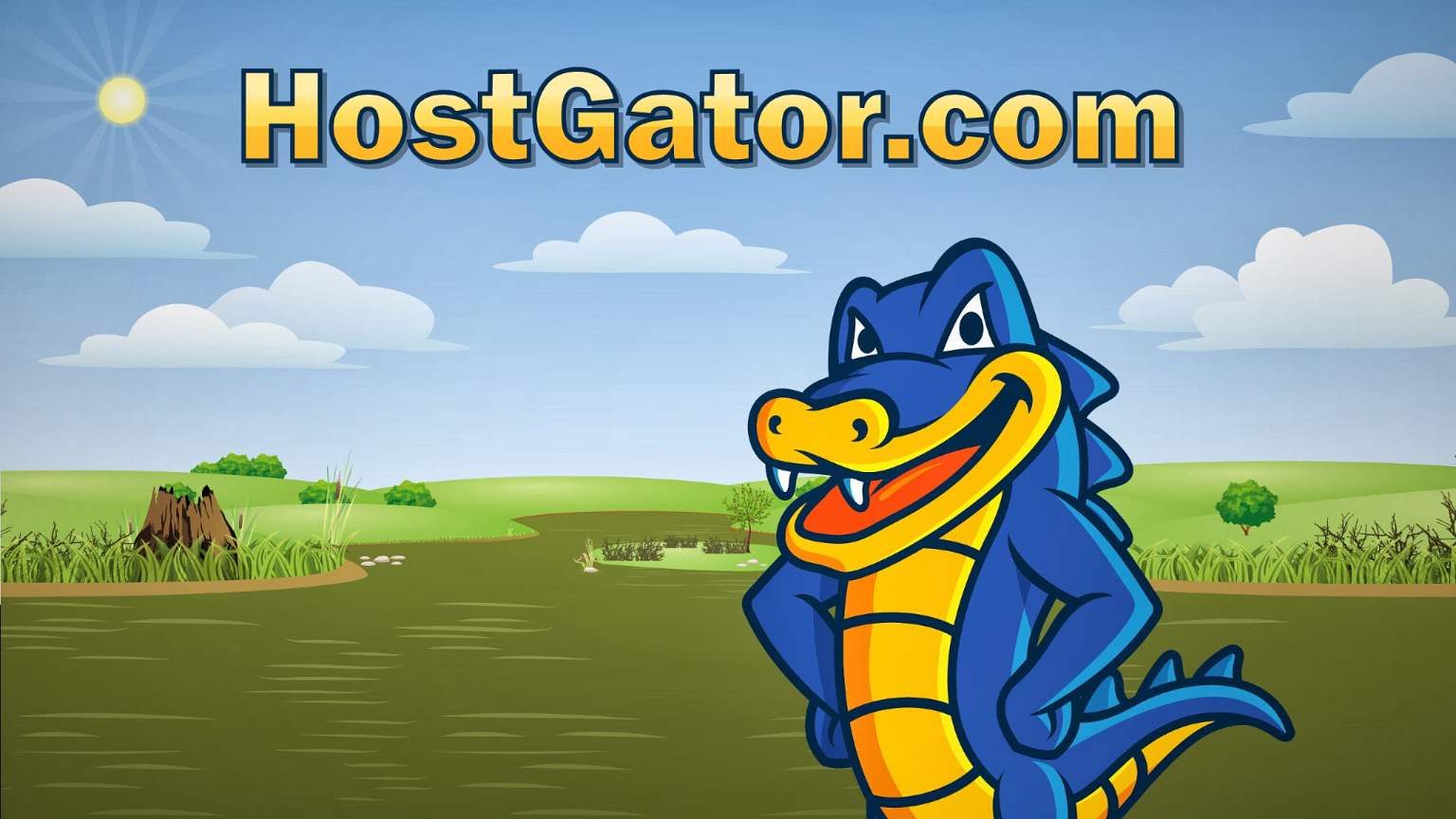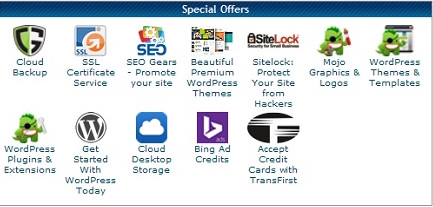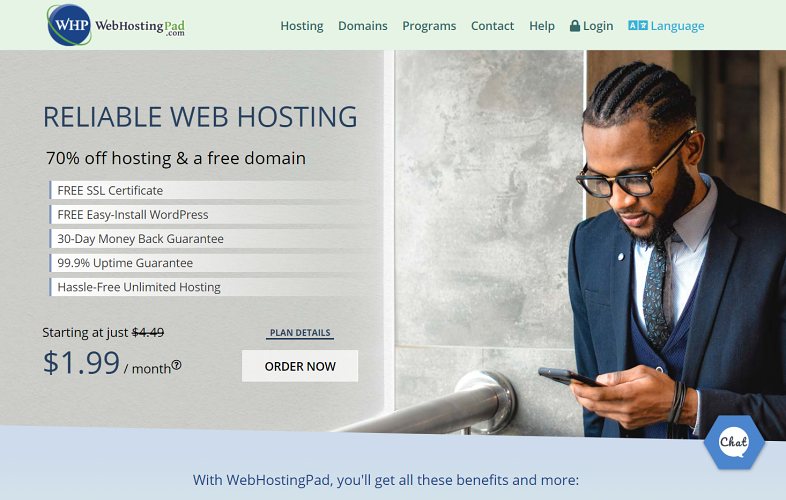
Founded in 2002 by an enterprising college student in his dorm room, HostGator has long since become one of the more recognizable brands within the web hosting industry, alongside the likes of GoDaddy, Bluehost, Dreamhost, and Namecheap. From domain names to dedicated servers, HostGator offers the full range of options for practically any hosting need.
I signed up for their shared plan — by far the most common choice — and have been testing it for the past couple months. Continue reading below for the details.
Signing Up
 I purchased the Hatchling package, HostGator’s most basic type of shared plan that comes priced from as low as $3.95 per month for three years paid up front to $10.95 when paid month-to-month. It is capable of hosting a single domain, and comes with unmetered bandwidth and disk space. “Unmetered” simply means that you are not charged based on how much bandwidth or disk space you consume, though it’s important that this does not mean it is unlimited. It is always important to read a hosting company’s Terms of Service before signing up, especially when it comes to specifics such as these. You are allowed to only host data such as web pages, emails, and any databases that are part of the obvious use of running a website. Using your plan for file storage of any kind is not permitted.
I purchased the Hatchling package, HostGator’s most basic type of shared plan that comes priced from as low as $3.95 per month for three years paid up front to $10.95 when paid month-to-month. It is capable of hosting a single domain, and comes with unmetered bandwidth and disk space. “Unmetered” simply means that you are not charged based on how much bandwidth or disk space you consume, though it’s important that this does not mean it is unlimited. It is always important to read a hosting company’s Terms of Service before signing up, especially when it comes to specifics such as these. You are allowed to only host data such as web pages, emails, and any databases that are part of the obvious use of running a website. Using your plan for file storage of any kind is not permitted.
As I have written in other reviews, I think that “unmetered” is little more than a marketing ploy, though it certainly can be beneficial to some customers. Namecheap, for example, offers 20GB of disk space, and A Small Orange offers 50GB of bandwidth, both of which are almost always sufficient for the average person running a small website. Customers exceeding these limits would generally be served better by spending a little more on a cloud package or a VPS. But there certainly are cases where someone’s website may simply spike above those limits on occasion without violating the hosting provider’s Terms of Service. In such cases, HostGator would probably be an ideal provider for you.
Signing up for the Hatchling plan was dead easy. Once you have selected your hosting package, you simply determine which pricing option is right for you (I chose the 3 month option), enter your desired login credentials and current billing information, select any package add ons such as an SSL or cloud storage, and you’re on you way!
Getting Started
After signup, HostGator helpfully emails you your login credentials to the HostGator customer portal as well as to the cPanel account on the shared server to which you have been assigned. Although the customer portal allows you to add any additional services you may want to your hosting package without having to contact customer support first, I did find it very unintuitive to navigate. It appears that HostGator is trying to centralize all hosting-related tasks that you may need to use in one place, including virtually everything you’d ordinarily do from cPanel itself, which I suppose is a good idea, but the execution is is confusing and at times extremely slow.
For that reason, I mostly worked through cPanel directly. HostGator’s cPanel interface is relatively identical to just about every other cPanel you’re likely to come across, except that it’s thoroughly branded with HostGator advertisements and even popups that try to upsell you on additional services. I found that pretty annoying and occasionally distracting. Luckily the company does allow you to change cPanel’s skin to one of the pre-packaged cPanel defaults, which is what I did after a while.
Features
HostGator comes with all of the web hosting features that you would expect when using cPanel, plus a few additional ones.
- QuickInstall, a one-click installation solution for software such as WordPress, Joomla, phpBB, and so on. Many other hosting providers use an installation solution called Softaculous, which is far and away much easier to use than QuickInstall. It appears that QuickInstall is made by a company called Mojo Marketplace, which a quick Google search confirms is owned by HostGator’s parent company EIG, meaning that all the various ads for certain “premium” services you can add is another way for customers to be upsold on something.
- CodeGuard, a pretty great cloud backup solution that I do recommend to people, though it is not free.
- SiteLock, a website malware cleaning service and CDN provider. Those who don’t upgrade their website software, particularly WordPress users, are at a high risk of having their sites infected, and SiteLock can help clean it for a high price. I generally recommend Sucuri over SiteLock, and keeping regular backups using something like CodeGuard before either. As for the CDN, I don’t know how well it works, though it’s worth noting that HostGator used to let you use CloudFlare, which was free and is very well known, but they must have later realized that they can generate more income by having you sign up for SiteLock.
- SSL Autoinstaller, which is always a nice feature. HostGator’s SSL prices are very cheap compared to buying directly from a certificate authority such as Comodo.
- SEO Gears, which looks to be a paid SEO optimization solution, and which a quick Google search also reveals is owned by HostGator’s parent company, EIG.
- Weebly, the easy-to-use visual site builder.
- Google Apps for Work, which many hosting customers, particularly those running a business, prefer to use over email provided by the host.
In general, these services are fine for most peoples’ needs, but HostGator is noticeably lacking some features that make other hosts more attractive on this point, particularly free services such as backups that can be managed by the user, as well as CloudFlare.
Customer Support
The quality of a web hosting company’s support is often as important as the service itself. With any provider, I first look for a good knowledge base simply because I like to do most things myself. Others find it more important to be able to get ahold of a competent support representative in a timely manner. My experiences with both were, on the whole, quite good.
HostGator’s knowledge base is probably the most thorough, helpful one that I have seen, though it is admittedly not as easy to navigate as Namecheap’s. It seriously has an article on just about everything I could think of, such as what versions of Ruby on Rails and Gems are available, and helpful examples for using mod_rewrite in your website’s .htaccess file. For those who like to do things themselves, HostGator’s knowledge base is a huge plus.
 Most customers do often need the assistance of a support technician, however. The first time I contacted support, it was to have them help resolve WordPress’s well known “Error establishing a database connection” message after I intentionally messed up my wp-config.php file. I take it that customer support sees this issue all the time, given WordPress’s widespread usage and the ease with which users can unintentionally misconfigure the database settings in the wp-config file. Predictably, support was able to resolve my issue fairly quickly.
Most customers do often need the assistance of a support technician, however. The first time I contacted support, it was to have them help resolve WordPress’s well known “Error establishing a database connection” message after I intentionally messed up my wp-config.php file. I take it that customer support sees this issue all the time, given WordPress’s widespread usage and the ease with which users can unintentionally misconfigure the database settings in the wp-config file. Predictably, support was able to resolve my issue fairly quickly.
The second time I contacted support was to ask for guidance on connecting to my shared server over SSH. Although I already knew how to do this, I wanted to test support on something a bit more technical. The response I got was basically a link to one of HostGator’s knowledge base articles that shows how to do it. I’m still not sure whether I think this is the best response or not, because on the one hand the knowledge base article is quite clear and easy to follow, but on the other is not exactly the sort of warm, friendly, walk-me-through-it support that some customers do need. Readers will need to determine for themselves whether they need a bit more hand-holding from customer support, or whether being linked to an admittedly excellent knowledge base article for a particular issue will suffice.
The third (and fourth) time I contacted support was for a real, but very intermittent issue that I experienced when loading my website. Twice I noticed that my site gave a “504 Gateway Timeout” error instead of WordPress. I explain more about this error below, but I wanted to see what customer support had to say about it. Unfortunately, the support technicians with whom I spoke seemed clueless about what the problem was, or how to resolve it. One simply said that he was not seeing the issue currently, which is true but doesn’t address the fact that it happened previously. The other was slightly more helpful in trying to explain, vaguely, how it can happen sometimes “with servers communicating over the internet,” but did not seem aware that the very servers in question are controlled by HostGator, and thus that the problem was on their end.
The takeaway here, I think, is that you can rely on support for help with the common, basic issues that can face a given web hosting customer, but the more technical challenges that can sometimes crop up are going to be beyond their expertise.
Performance
HostGator provides customers on shared hosting with a 99.9% uptime guarantee, which in their Terms of Service is “defined as the reported uptime from the operating system and the Apache Web Server which may differ from the uptime reported by other individual services.” It is important to note that the caveat to the guarantee means that if, for example, MySQL or email service goes down on your server, or if there is a networking issue that prevents your website from loading altogether, it will not count as affecting your service’s uptime as narrowly defined.
 Shared servers are located in two data centers in Houston, TX, and Provo, UT, the latter of which is owned and operated by HostGator’s parent company, EIG, where a number of other sister companies also house their servers. Unfortunately the Provo data center is known for having performance problems, but more on that later. The servers themselves utilize either a 32 Core AMD Opteron 6376 or a 32 Core Intel(R) Xeon(R) E5-2630 v3 processor, 64GB RAM, RAID 1 arrays, and SSD drives for MySQL. These are very solid, high performance, mostly industry standard machines that are capable of hosting the many dozens to hundreds of websites that are typically run on shared plans.
Shared servers are located in two data centers in Houston, TX, and Provo, UT, the latter of which is owned and operated by HostGator’s parent company, EIG, where a number of other sister companies also house their servers. Unfortunately the Provo data center is known for having performance problems, but more on that later. The servers themselves utilize either a 32 Core AMD Opteron 6376 or a 32 Core Intel(R) Xeon(R) E5-2630 v3 processor, 64GB RAM, RAID 1 arrays, and SSD drives for MySQL. These are very solid, high performance, mostly industry standard machines that are capable of hosting the many dozens to hundreds of websites that are typically run on shared plans.
A weekly courtesy backup is performed by HostGator for all shared accounts that are not over 20GB of disk usage or 100,000 inodes, and backups are not considered guaranteed since they are not part of the features of a shared package. Furthermore, they are not free (as they are with A Small Orange) and will cost you $10 each time you restore from them. As a general rule of thumb, it is always wise to have your own backup solution such as CodeGuard, and treat a hosting provider’s backups as a last, emergency resort.
Reliability
While testing HostGator’s services, I found them mostly fast and reliable. I noticed no performance issues with cPanel, email, FTP, or SSH. My website speed, which was a basic WordPress installation, was excellent, loading in about a second using the various benchmark tests that I’ve run, including GTMetrix, Pingdom, and WebPageTest. The only service that I found sluggish was HostGator’s customer portal, which as I mentioned above is intended to be a centralized place where customers can get everything done without having to juggle multiple login locations. Unfortunately it can be a significant delay just navigating to various tabs within the customer portal, and a couple times I noticed that it timed out altogether.
As I have noted in other reviews, I always check the uptime of the operating system as well as Apache to get a baseline sense of service reliability. I’m happy to report that, as of my writing, the operating system on my server has been up for 276 days, and Apache 215 days. With other web hosting companies, I have had to contact customer support to find out why uptimes are low, or even to report an issue that the company appears to be unaware of, and in each case either multiple levels of support were unable to tell me why, or were unable to fix the issue. I did not have to do that with HostGator.
The one problem I did notice a couple times were rare, but still occasional, “504 Gateway Timeout” errors when trying to load my website. A little bit of Googling showed this to be a surprisingly more-common-than-you’d-want issue with HostGator. Their knowledge base article on error codes is not very helpful on this point, and as I discussed above, my attempts to get customer support to explain the issue were fruitless. The reason it happens, and which support did not know, is that these sorts of errors are caused by load balancing problems among their server infrastructure. Essentially, it’s getting more traffic than the existing infrastructure can handle, and as a consequence website requests are occasionally timing out. This would be very frustrating and obviously damaging for any website that serves a business need, especially if revenue is directly generated from it. For that reason, I would strongly recommend against hosting a business-critical website on HostGator shared services.
bento4d
penidabet
situs toto
situs toto
situs togel
slot gacor
bento4d
situs togel
data macau
link slot gacor
slot gacor
situs togel
slot gacor
situs togel
penidabet
situs togel
situs toto
toto togel
situs togel
toto slot
https://cabinindo.id/
bo togel
hk pools
bento4d
situs togel
prediksi hk













HostGator no good for me… If you have any type of business that requires reliable uptime STAY AWAY… I have a blog that earns Ad Revenue and was OFFLINE FOR 2 DAYS!!! Had to migrate because HostGator Support barely exists…